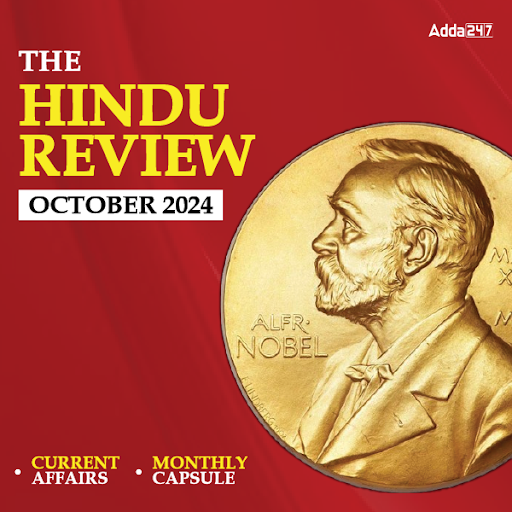Dear Readers,
Just a few days are left for SBI PO and NIACL Assistant Examination. It is time to pace up your preparation for SBI PO Prelims and NIACL Assistant Prelims 2017. These Reasoning questions will also help you in preparing for BOB PO and NICL AO 2017 recruitment examination.
Directions (1-5): Study the following information carefully to answer the given questions.
Seven cricket players viz. P, Q, R, S, T, V and W played in seven different matches in a week starting from Monday and ending on Sunday. Some of them are bowlers and some of them are batsman. Their Run/Wickets in the seven matches are – 50, 5, 4, 16, 8, 4 and 25. No bowler can take more than 10 wickets.
V plays on Thursday. Two matches are played between the matches played by player V and player P. On the first day of the week, the batsman scored half century played in the match.
The sum of Runs/Wickets of the player W and Q is equaled to the Runs/Wickets of S. All the bowlers should be preceded and succeeded by batsman and T is the only bowler which cannot be succeeded by any one. P is the only batsman which is followed by another batsman.
Only one match is played between the matches played by the player T and S. The score of the batsman who played the match on Thursday is the perfect square of the score of the player who played on Saturday.
The match played by T is not played on the day immediately before or immediately after the day when the match of player V is played. The match played by R is played on the day immediately before the day when the match of player W is played. Match played by S is not played after the match of player Q.
Q1. As per the given arrangement which of the following combination represents only the people who are bowlers?.
(a) T, V
(b) Q, P, T
(c) V, W, R
(d) P, T
Q2. As per the given arrangement which of the following person represent the one who was played in between the W and S?
(a) U
(b) P
(c) R
(d) V
(e) W
Q3. Who among the following takes 8 wicket ?
(a) T
(b) W
(c) S
(d) Q
(e) None of these
Q4. Which of the following combinations is correct as per the given arrangement?
(a) Monday – P
(b) Tuesday – W
(c) Wednesday – Q
(d) Thursday – S
(e) Friday – T
Q5. Who amongst the following scored half century?
(a) P
(b) V
(c) U
(d) W
(e) T
Directions (6-8): Question consists of five statements followed by five conclusions. Consider the given statements to be true even if they seem to be at variance with commonly known facts. Read all the conclusions and then decide which of the given conclusions does not logically follow from the given statements using all statements together.
Q6. Statements: Some sky are blue. All blue are air. No Air is earth. Some earth is result. All result is exam.
Conclusions: (a) Some sky is not earth.
(b)Some blue is not earth.
(c) Some earth are exam.
(d) All sky being earth is a possibility.
(e) All earth being exam is a possibility.
Q7. Statements: Some paint is pink. Some pink is black. All black is violet. Some violet is brown. All brown is red.
Conclusions: (a) All paint being violet is a possibility.
(b) All pink being red is a possibility.
(c) Some pink is violet.
(d) Some violet is red.
(e) Some paint is red.
Q8. Statements: Some boy is cute. All cute is good. Some good is best. No best is excellent. All excellent is selected.
Conclusions: (a) All boy being best is a possibility.
(b) Some good is not excellent.
(c) All best being selected is a possibility.
(d) All cute being best is a possibility.
(e) Some boy is best.
Directions (9-10): In each group of questions below are two conclusions followed by five set of statements. You have to choose the correct set of statements that logically satisfies given conclusions. Given statements to be true even if they seem to be at variance from commonly known facts.
Q9. Conclusions:
All tree are forest.
Some forest are not Green.
Statements:
Statements I: Some tree are air. Some air are forest. No Green is air
Statements II: All forest are air. Some air are tree. No Green is air
Statements III: All tree are air. Some air are forest. Some Green are forest
Statements IV: All tree are air. All air are forest. No Green is air
Statements V: All tree are air. All air are forest. Some Green are forest
(a) Only Statements I
(b) Only Statements II
(c) Only Statements III
(d) Only Statements IV
(e) Only Statements V
Q10. Conclusions:
Some sliver are bright
At least some metal are gold
Statements:
Statements I: Some gold are metal. Some metal are bright. Some bright are sliver
Statements II: Some gold are bright. Some bright are metal. Some metal are sliver
Statements III: All gold are metal. Some metal are bright. No bright is sliver
Statements IV: All gold are metal. All metal are bright. No bright is sliver.
Statements V: Some gold are metal. Some metal are bright. No bright is sliver.
(a) Only Statements I
(b) Only Statements II
(c) Only Statements II
(d) Only Statements IV
(e) Only Statements V
Q11. Pole P is 13 km towards the East of Pole Q. Siddharth, starts from Pole Q, travels 8 km towards West and takes a right turn. After taking the right turn, he travels 5 km and reaches Pole B. From Pole B , Siddharth takes a right turn again, travels 21 km and reaches Pole C. How far and towards which direction must the Siddharth travel to reach Pole P?
(a) 5 km towards South
(b) 5 km towards West
(c) 21 km towards South
(d)13 km towards South
(e) None of these
Q12. How many such pairs of letters are there in the word RETURNS, each of which has as many letters between them in the word (in both forward and backward directions) as they have between them in the English alphabetical series?
(a) None
(b) One
(c) Two
(d) Three
(e) More than three
Q13. Anurag correctly remembers that his father’s birthday is not after eighteenth of April. His sister correctly remembers that their father’s birthday is before twentieth but after seventeenth of April. On which day in April was definitely their father’s birthday?
(a) Seventeenth
(b) Nineteenth
(c) Eighteenth
(d) Seventeenth or Eighteenth
(e) None of these
Directions (14-15): Study the following information carefully and answer the questions given below:
(i) ‘P × Q’ means ‘P is sister of Q’.
(ii) ‘P + Q’ means ‘P is mother of Q’.
(iii) ‘P – Q’ means ‘P is father of Q’.
(iv) ‘P ÷ Q’ means ‘P is brother of Q’.
Q14. Which of the following represents ‘A is grandfather of B’?
(a) A + C – B
(b) A ÷ C – B
(c) A × C + B
(d) A –C-B
(e) None of these
Q15. Which of the following represents ‘A is nephew of B’?
(a) A ÷ C – B
(b) B ÷ C – A
(c) B × C + A × D
(d) B ÷ C – A ÷ D
(e) None of these




 The Hindu Review October 2022: Download ...
The Hindu Review October 2022: Download ...
 Important Letter Topics for IBPS PO Main...
Important Letter Topics for IBPS PO Main...
 IDBI Executive 2024 Exam Date Out for 10...
IDBI Executive 2024 Exam Date Out for 10...




